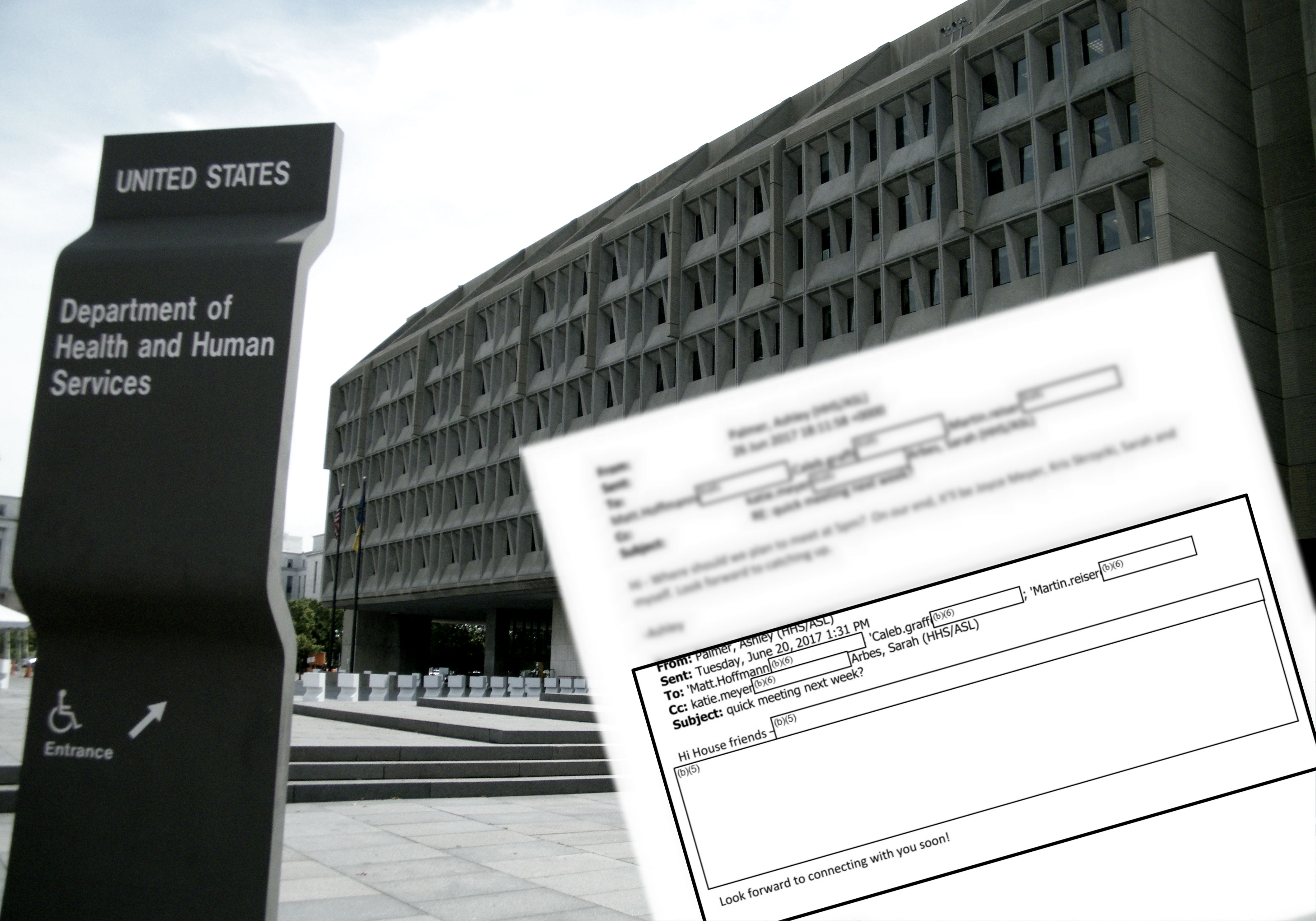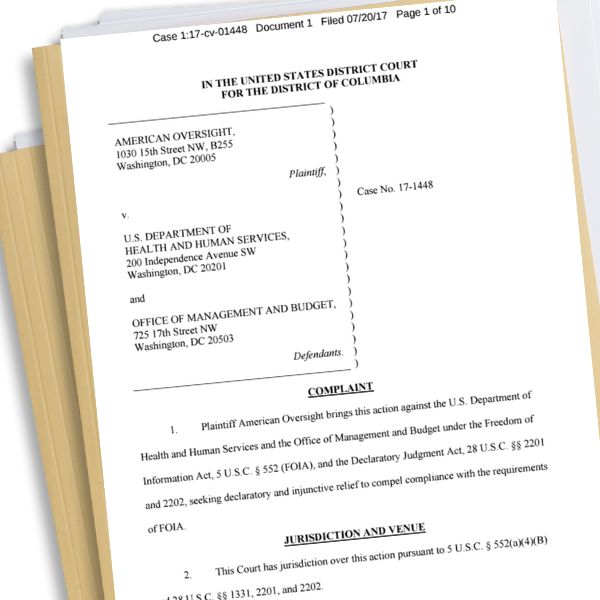
Federal Judge Rejects Administration’s Argument for Withholding Communications with Congress about ACA Sabotage
In a major win for transparency, a federal judge rejected an argument the administration was using to withhold communications about executive branch options for weakening the Affordable Care Act.

This past weekend — less than a week after the Trump administration asked a federal court to invalidate the Affordable Care Act — a federal judge rejected an argument the administration was using to withhold communications it had with Congress in 2017 about executive branch options for weakening the health-care law.
In early 2017, as the administration and congressional Republicans made what was ultimately a failed attempt to “repeal and replace” the ACA, Mick Mulvaney, then the director of the Office of Management and Budget, reportedly sent a secret letter to members of the Freedom Caucus detailing administration plans to weaken the law. Senate Democrats requested that then-Secretary of Health and Human Services Tom Price turn over the letter, and American Oversight filed Freedom of Information Act requests with HHS and OMB seeking communications from those agencies to Congress regarding potential administrative actions they might take relating to implementation of the ACA — including the letter sent to the Freedom Caucus.
When they didn’t respond, American Oversight went to court. The agencies ultimately produced a set of materials, including the letter, but the emails with Congress contained heavy redactions that they argued fell under FOIA’s Exemption 5, which is designed to protect “inter-agency or intra-agency” deliberations. HHS and OMB claimed that even though Congress is plainly not an “agency,” those communications could nevertheless be withheld because they were exchanged “as part of the agencies’ deliberations about the range of possible administrative actions related to health care reform.” The agencies relied on what is known as the “consultant corollary,” under which Exemption 5 can sometimes be extended to outside consultants so long as they are acting “akin to an agency employee.” American Oversight argued that this “corollary” only extends to outside consultants who are neutral parties not representing their own interests, and therefore cannot extend to members of Congress who are unable to stand in the shoes of agency employees because they are advancing their own (or their constituents’) interests.
On Saturday, Judge Amy Berman Jackson agreed with American Oversight and ordered the agencies to produce the documents. Jackson concluded that HHS and OMB could not redact the substance of their communications with Congress under Exemption 5 because those communications do not fall under the “consultant corollary.” Had she adopted the government’s position, it could have dramatically expanded the scope of Exemption 5 beyond what was contemplated by Congress when it enacted FOIA, giving the government an argument to support withholding communications with virtually any outside think tank, interest group, or lobbyist.
Specifically, Jackson noted that “the point of the deliberative process privilege is to foster candid communication within the agency, and the consultant corollary simply recognizes that on some occasions, outsiders may stand in the shoes of fellow agency employees, when they have been specifically asked to provide input from a neutral perspective.” There can be no doubt that the congressional offices with whom the agencies communicated had their own independent interests on the topic of health-care reform.
Jackson also concluded that the agencies had improperly withheld material from public disclosure in another way. American Oversight’s FOIA request sought only communications from the agencies to Congress. In the email communications the agencies produced, they relied on that language to redact all of the emails in the chains that were sent from Congress to the agencies — in other words, every other email in the chain — arguing that those incoming emails were not responsive to our FOIA request.
That, of course, is nonsensical. American Oversight argued that a reply email from an agency employee to Congress contains within it all of the earlier email messages that preceded it in the chain. Jackson agreed, and ordered the agencies to produce the previously withheld email chain messages. “The very nature of a ‘reply’ — as opposed to a ‘new message’ — necessarily implies that the communication is responsive to the message that came before, and therefore it incorporates what came before, and the two form a unified exchange,” Jackson wrote in her opinion. “Indeed, in many instances, a reply email (‘I agree.’ ‘No.’ or ‘LOL’) simply cannot be understood without reference to the previous message.”
Late on Monday, President Donald Trump tweeted that Republicans would delay presenting their proposal for replacing the ACA until after the 2020 election, despite its ongoing effort to strike down the health-care law — efforts that could throw at least 20 million people off their health insurance.
